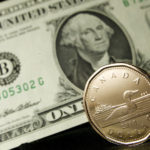Gold fell on Monday, erasing earlier gains during the Asian session. The precious metal rebounded on Friday after being hammered down following Feds meeting on Wednesday, but still settled with a 6.8% weekly loss, the worst performance since September 2011.
On the Comex division of the New York Mercantile Exchange, gold futures for August delivery lost 0.75% on the day, trading at $1 282.35 per troy ounce at 8:29 GMT. Prices ranged between daily high and low at $1 300.55 and $1 277.65 respectively.
The precious metal fell through four straight days last week as speculations over Fed scaling down and ending its monetary easing program weighed on prices. Gold slumped to $1,269.46 last week, the cheapest since Sept. 16, 2010 after Ben Bernankes statement gave an immense boost to the greenback, pushing almost all dollar-priced commodities down. The metal rebounded on Friday, gaining back 1.71%, but still settled the week 6.8% lower. The dollar index, which tracks the greenbacks performance against six major counterparts, hit a two-week high and marked a 2.2% weekly gain. It extended its positive performance through Monday, adding 0.28% by 8:10 GMT.
Golds demand prospect was hurt as U.S. economic data earlier during the week showed a stable and low rate of inflation, which pressured the precious metal as it is mainly used as a hedging tool against inflationary effects. Core CPI, which excludes the more volatile energy and food prices, rose only by 0.2% compared to 0.1% in April and met projections. On an annual basis Core Consumer Price Index also met expectations and remained the same compared to May 2012 at 1.7%. CPI for May was even lower than anticipated and stood at 0.1%, below forecasts for a 0.2% increase.
Market players are speculating whether the attractive lower prices will lure in investors the same way they did in April after the 30-year record slump on April 15-16. That was followed by increased physical demand in India and China and many central banks, which felt the time is right to diversify assets through cheap gold. In fact, demand surged so high that India’s central bank was forced to introduce curbs to gold imports as the country’s current account deficit widened to a record level. As a result, inbound shipment tax for the precious metal was raised to 8%, up from 6%.
Sun Yonggang, a macroeconomic strategist at Everbright Futures Co. said for Bloomberg: “Below $1,300 is certainly attractive to some buyers. Gold in a way is a measure of liquidity conditions, and if it’s the end of easy money around the world, it would be negative.”
Investors are now looking ahead into this weeks key U.S. economic data, which, if positive, will spur further speculation over an earlier-than-expected Quantitative Easing scale down and will support golds bearish sentiment. Durable goods orders, consumer confidence and new home sales are due on Tuesday. Scheduled for Wednesday are the final Q1 GDP and Consumer Spending readings. On Thursday, initial jobless claims will give some preliminary information for the unemployment rate in the worlds biggest economy.
Elsewhere on the precious metals market, silver, platinum and palladium are also following gold down the scale. Silver for September delivery lost 1.74% on the day, trading at $19.654 an ounce at 8:26 GMT. Platinum October futures stood at $1 361.90 at 8:27 GMT, down 0.85%. Prices ranged between daily high and low at $1 382.25 and $1 356.55 respectively. Palladium for September delivery lost 0.54% today, standing at $671.10 an ounce. The precious metal ranged between days high at $677.60 and low of $664.70.





